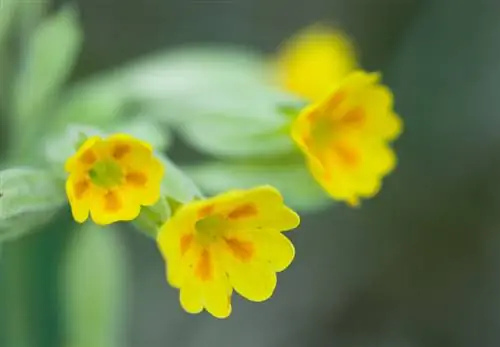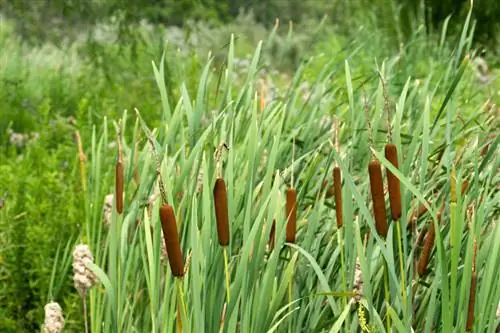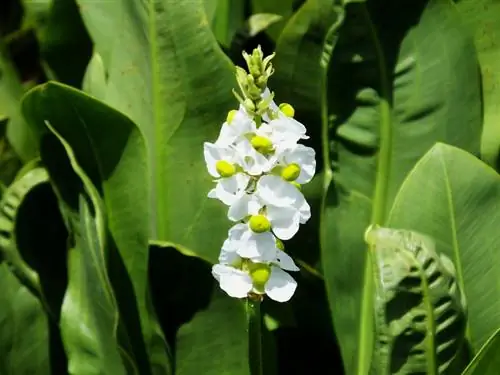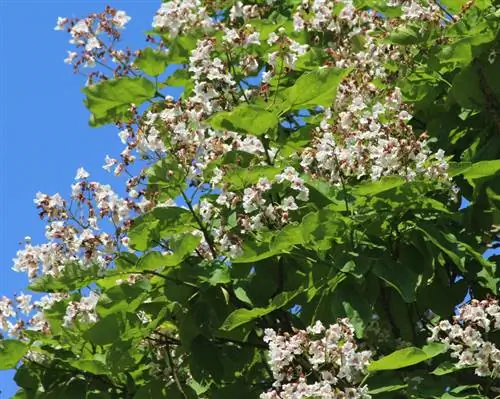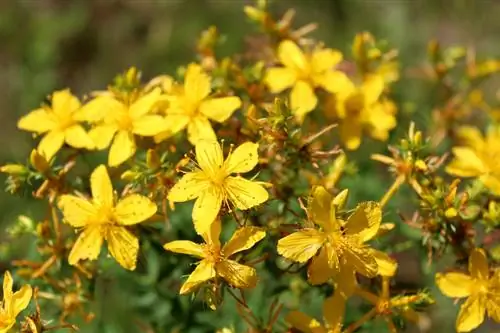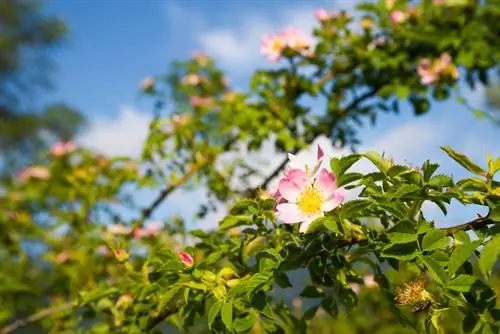- Author admin leonars@hobbygardeners.com.
- Public 2023-12-16 16:46.
- Last modified 2025-01-23 11:20.
The native wild perennial, also known as the key to heaven, is unmistakable: in spring, a strong, hairy stem grows from rosettes of slightly gray-green, wrinkled leaves, on which an umbel of up to 20 cup-shaped, slightly drooping, golden yellow and delicately scented flowers. The plant grows up to 15 centimeters high and wide.
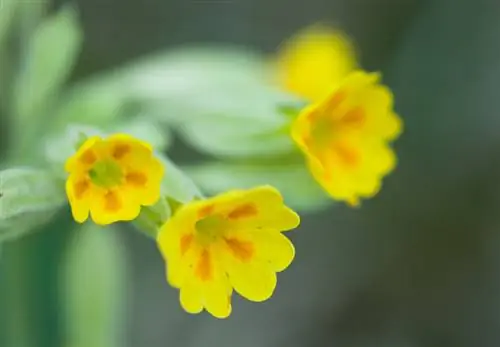
What are the properties of the cowslip?
The cowslip (Primula veris) is a perennial, herbaceous plant that grows to a height of 15-25 cm and bears golden yellow, umbellate flowers from April to June. It prefers sunny to semi-shady locations, moist, humus-rich and permeable soil and is well suited for natural gardens and rockeries.
Data and facts about the cowslip at a glance
- Botanical name: Primula veris (Queen Cowslip), Primula elatior (Tall Cowslip), Primula vulgaris (Stemless Cowslip)
- Family: Primrose family (Primulaceae)
- Genus: Primroses (Primula)
- Popular names: among others Heaven's Key, Lady's Key, Märzenblümli, Petri Flower, Egg Herb, Auritzel, Meadow Primrose
- Origin and distribution: Europe, Near East
- Location: meadows, light deciduous forests (especially mixed oak and beech forests), forest edges
- Growth habit: herbaceous, in groups
- Height: approx. 15 to 25 centimeters
- Perennial: yes
- Flowers: doldig
- Colors: yellow, red, orange
- Flowering time: April to June (in southern regions also from February)
- Fruits: capsule fruit with numerous seeds
- Leaves: arrangement in rosette
- Propagation: seeds, division
- Winter hardiness: very good
- Toxicity: no
- Use: ornamental plant, butterfly willow, medicinal plant
Primrose is very suitable for natural gardens
Primroses are particularly popular when planted in natural gardens that should have soil that is as moist as possible. The charming wild perennial also looks great in the rock garden. It is easy to release into the wild, but can quickly become a problem if it feels too comfortable in one location. Cowslips prefer a sunny to semi-shady location on humus-rich and moist but permeable soil. It also thrives very well on calcareous soils. Expect around eleven to 25 plants per square meter to be planted.
Care and propagation
Primroses are considered extremely easy to care for. If self-sowing is not desired, the fruit heads should be removed in good time. The plant particularly likes to hybridize with Primula elatior, the cowslip. Propagation occurs either by sowing after the seeds have ripened or by division during the growth phase.
Tip
The “Sunset Shades” mix looks particularly beautiful, blooming in yellow, red and orange tones and growing up to 25 centimeters high. Red-flowered cowslips come from crosses with the hybrid Primula polyantha.

